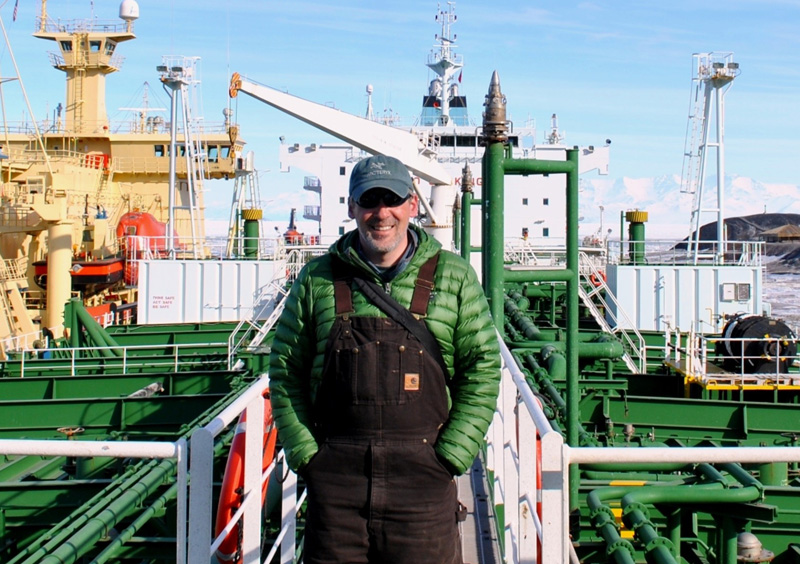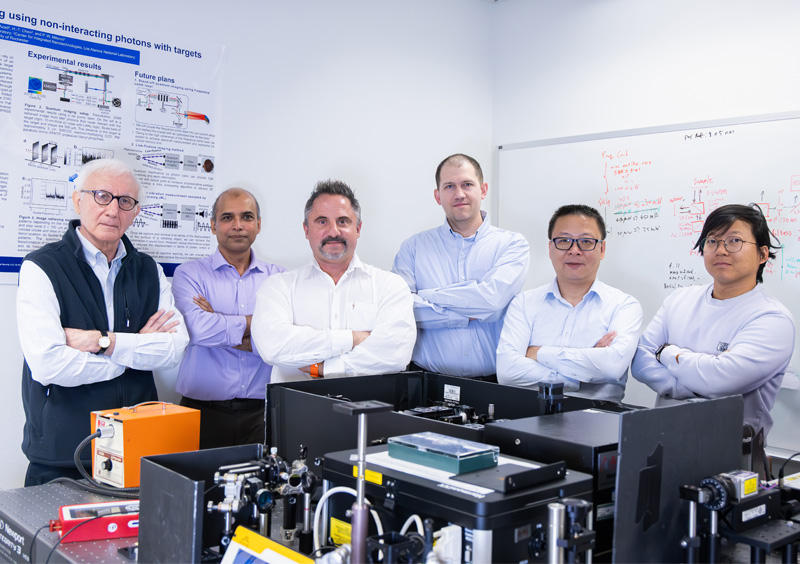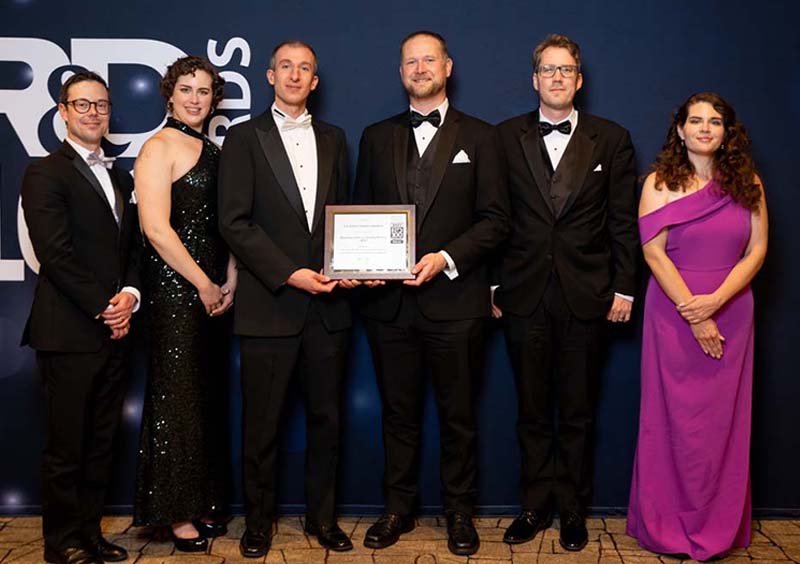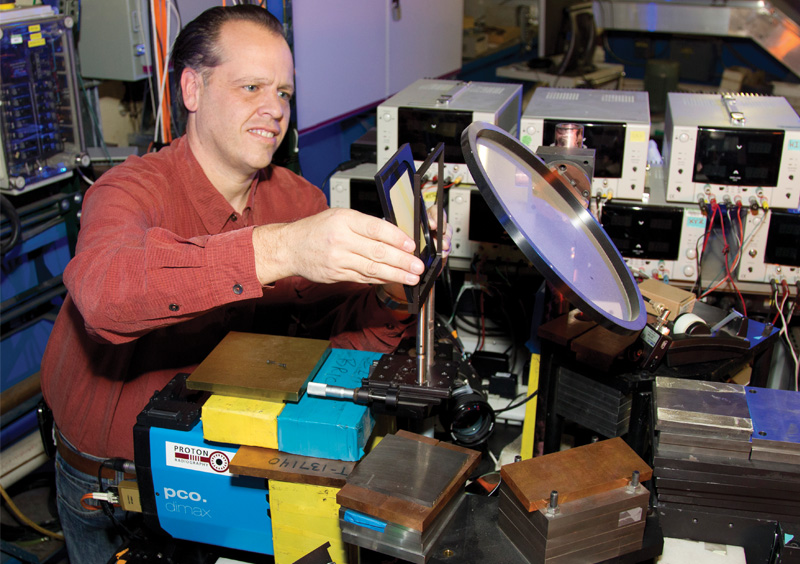If you ask Nate Biletnikoff to describe the most impactful experience he’s had throughout his 30-year career, the answer may surprise you. It’s not helping defense contractors safely integrate environmental management programs in the Antarctic or building relationships with stakeholders while working for an oil and gas company in the Pacific Northwest.
It’s not even the work he passionately does in his current role at Los Alamos National Laboratory, where he leads the Environmental Stewardship group and strives to help the Lab integrate with the community as a true partner. Instead, Biletnikoff says it’s the people that have the biggest impact on him.
“I work for our staff,” Biletnikoff said. “Working in high-consequence environments over the years, I quickly learned how vital it is to have a deep, shared level of trust throughout the team. We genuinely care about each other, and that’s why we succeed.”
Care for people sprouts from a passion for nature
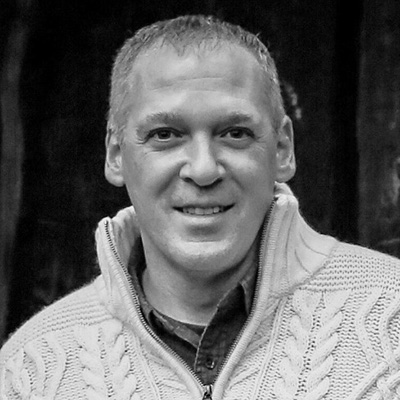
Biletnikoff wanted to save the world. For several years, he led federal environmental management programs for U.S. scientific research activities in Antarctica. Through contracts with Raytheon and Lockheed Martin, Biletnikoff helped implement environmental management and conservation plans while also ensuring the scientists and contractors working on the southernmost continent had the operations and infrastructure support to be successful.
Soon, experience came in spades.
The year was 2013, a particularly contentious time for the oil and gas industry. Shell had just restarted an Arctic drilling campaign in Alaska. Protesters were present at ports and refineries, Greenpeace had boarded an oil rig and there were zero social-impact management strategies in place at the company. Biletnikoff dove in and became the primary interface with the surrounding communities, tribal nations and environmental non-government organizations (NGOs).
“At first, it seemed like my work in the Antarctic was a far cry from what I was being asked to do in my new role with Shell,” Biletnikoff said. “But what I came to quickly understand was that there were many parallels. I spoke the same language of those who had issues and concerns about what Shell was doing. I had empathy for them.”
This understanding helped him build relationships with community stakeholders, and soon led to a shared commitment to taking care of people in the community, as well as those on his team.
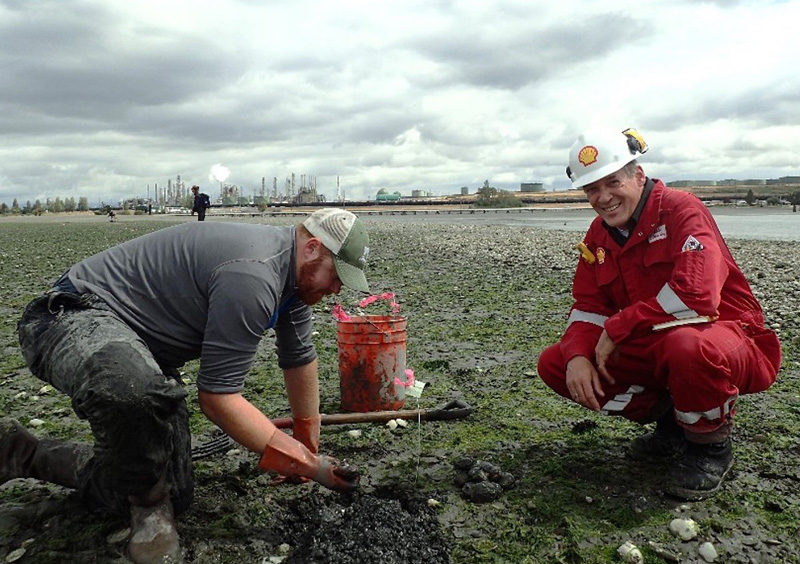
Nate Biletnikoff, right, and a colleague collect sea life samples near Anacortes, Washington, in 2017. Up until that time, the refineries did not allow non-employees on company-owned property. However, these shorelines were significant to the neighboring Swinomish Indian Tribal Nation for traditional and cultural practices and used for bait clam harvesting (for use as fishing bait) before the refineries were built. After these samples were returned as “clean,” Biletnikoff’s team facilitated unimpeded access to these shorelines, returning a particularly verdant near-shore area to the Tribe for cultural use.
One of the lessons Biletnikoff has learned throughout his career is that people — both inside and outside whichever organization he’s working with — have much more in common than they realize. Employees are also community members, and they share in the same stakes that non-employees care about, too.
“The success I’ve celebrated with my teams is the result of my being a leader and an integrator, and having a strong commitment to shared, principled values,” Biletnikoff said. “The Safe Conduct of Research (ScoR) Principles are fundamental in how I lead my teams, and they’ve been instrumental in shaping the positive, transformative culture here at Los Alamos, and in many of my past leadership roles.”
Living the SCoR Principles
This deep alignment with the Safe Conduct of Research Principles is at the heart of Biletnikoff’s leadership style. They are more than a set of guidelines; they are a cultural foundation that ensures work is conducted with the highest standards of safety and integrity.
His commitment to safety goes beyond compliance. Biletnikoff champions a culture where process safety and personal well-being are inseparable, ensuring that safeguards protect not only the workforce, but also the surrounding communities. His experience in technically and physically demanding environments has taught him that world-class research can only happen when people feel safe, valued and empowered.
“I am an integrator at heart,” Biletnikoff said. “I truly believe that the best solutions emerge when diverse voices are brought to the table, whether it’s scientists, community members, tribal nations or NGOs.”
At Los Alamos, Biletnikoff is leading efforts to reimagine stakeholder engagement, moving from traditional social impact management to strategic, non-technical risk management and true partnership with the public. The goal is to deepen the Lab’s engagement with Northern New Mexico and help convey the Laboratory's mission, both the important work being done and the people who do it.
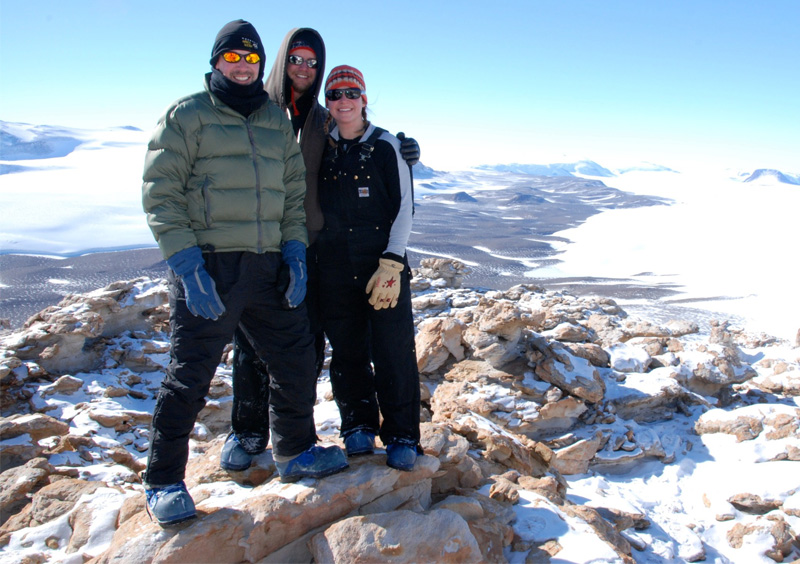
Nate Biletnikoff, left, and his colleagues summit Battleship Promontory, a sandstone land feature in the Alatna Valley, Antarctica, in February 2011.
Biletnikoff’s leadership is grounded in respect for people, respect for the mission and the responsibility that comes with operating in complex environments. He understands that trust is earned through visible leadership, honest communication and a genuine commitment to shared values. By fostering a culture of respect, Biletnikoff helps create an environment where innovation thrives and everyone has a stake in success.
Currently, Biletnikoff is helping his team and the leadership at Los Alamos rethink how they engage with communities and stakeholders during project planning. This approach not only supports DOE’s goals for improved efficiency, but also strengthens the Lab’s reputation and responsiveness.
“These challenges provide leaders the opportunities to exhibit maturity, to be a guiding light,” Biletnikoff said. “There’s still a lot that can be done in that regard here in Los Alamos, and I’m honored to be a part of this journey.”
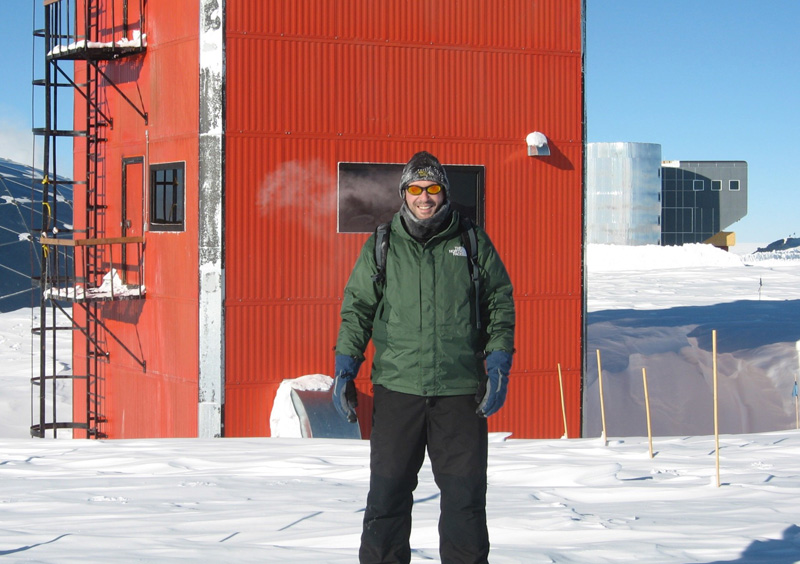
Continuous learning and principled leading
Biletnikoff’s story is a testament to the power of principled leadership. He has learned that the most daunting scientific challenges, whether in the Antarctic, the oil fields or the laboratories of Los Alamos, are also the greatest opportunities for growth and transformation. Through the lens of the SCoR Principles, he is helping to deliver world-class research that not only advances science but also builds trust and collaboration, within his team and throughout his community.
LA-UR-25-28542
